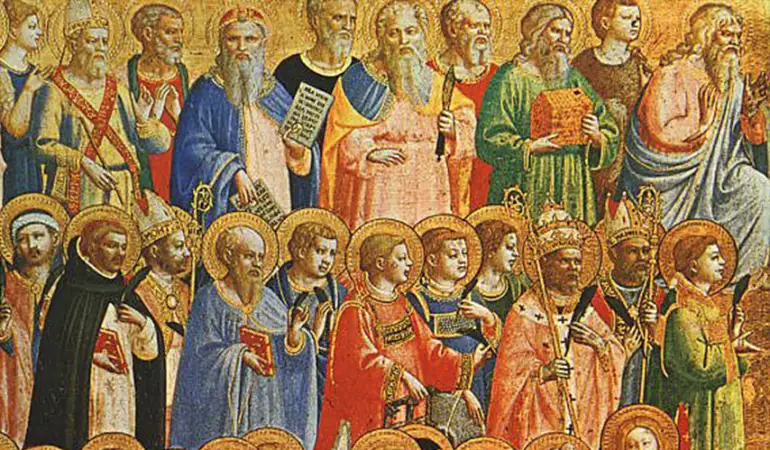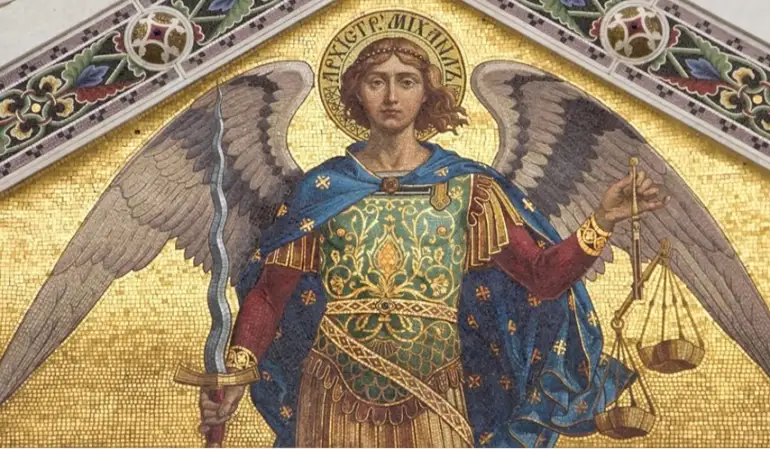Becoming a Saint: Journey to Canonization and Eternal Recognition
Delving into the historical process and spiritual significance of achieving sainthood within the Christian tradition.
March 26, 2025 14:28
For many outside the Catholic Church, the concept of a "saint" might conjure images of ancient figures, noble acts, or perhaps miraculous interventions. But what does it truly mean to become a saint in the Catholic tradition, and why does the Church invest such profound effort in recognizing these individuals? Far from being a mere historical footnote, sainthood represents a spiritual journey both for the individual recognized and for the countless believers who find inspiration in their lives.
Understanding sainthood requires looking beyond the miraculous to grasp the meticulous process of canonization and, perhaps more importantly, the enduring spiritual significance it holds for Catholics worldwide.
A Glimpse into History: The Evolving Path to Sainthood
In the early centuries of Christianity, sainthood was often a more localized and spontaneous affair. Martyrs, those who died for their faith, were immediately recognized as saints by local communities, their burial places becoming sites of veneration. Over time, as Christianity spread and the number of recognized holy individuals grew, and as less dramatic lives of heroic virtue also came to be admired, the Church saw the need for a more formalized process to ensure the authenticity of such veneration.
By the medieval period, the papacy began to centralize the process, taking on the authority to formally declare someone a saint. This shift aimed to ensure consistency and prevent abuses. Over the centuries, the procedures became increasingly rigorous, leading to the highly structured, multi-stage process we see today, managed primarily by the Vatican's Dicastery for the Causes of Saints. This evolution reflects the Church's deep commitment to certainty and integrity in matters of faith.
The Journey to Canonization: A Progression of Recognition
The path to sainthood, known as canonization, is a long and often arduous spiritual journey, not just for the deceased individual, but for the Church committees diligently examining their life. It unfolds in distinct stages, each representing a deeper level of recognition by the Catholic Church:
- Servant of God: The journey begins at the local level, usually five years after a person's death (though this can be waived). If there is a "reputation of holiness," the local bishop can open an investigation into their life. During this phase, documents are collected, and witnesses are interviewed. If the findings are positive, the person is declared a "Servant of God." This is the Church acknowledging that a formal cause has begun.
- Venerable: The collected evidence is then sent to the Vatican. Experts scrutinize every aspect of the person's life and writings, searching for "heroic virtue"—an extraordinary commitment to Christian virtues like faith, hope, charity, and perseverance. If these virtues are confirmed to an exceptional degree, and the Pope approves, the individual is declared "Venerable." This signifies that the Church recognizes they lived a life of outstanding holiness, worthy of admiration.
- Blessed (Beatification): To move from Venerable to "Blessed," a confirmed miracle is typically required, attributed to the Venerable's intercession and occurring after their death. These miracles, often inexplicable healings, undergo stringent scientific and theological examination to rule out any natural explanation. For martyrs (those who died for their faith), the heroic sacrifice itself is considered sufficient for beatification, without the need for a miracle. Beatification allows for public veneration of the individual, usually limited to a specific diocese, country, or religious order.
- Saint (Canonization): The final step is canonization, bestowing the title of "Saint." For this, a second miracle, occurring after beatification and attributed to the Blessed's intercession, is required and must pass the same rigorous scrutiny as the first. Once confirmed and approved by the Pope, the Blessed is formally declared a "Saint." This declaration is understood by Catholics as an infallible statement that the individual is indeed in Heaven and is now worthy of universal public veneration throughout the entire Catholic Church.
The Spiritual Significance: Why Saints Matter
For Catholics, sainthood is far more than an honorific title or a historical recognition; it carries profound spiritual significance:
- Models of Holiness: Saints serve as tangible examples of what a life lived in profound devotion to God can look like. They demonstrate that holiness is attainable in various walks of life and circumstances, offering encouragement and inspiration to ordinary believers striving for spiritual growth.
- Powerful Intercessors: Catholics believe that saints in Heaven, being in God's presence, can intercede effectively on behalf of those on Earth. They are seen as spiritual allies and friends, joining their prayers with ours and presenting them to God.
- Confirmation of God's Grace: A saint's life, especially one marked by confirmed miracles, is seen as concrete evidence of God's grace at work in the world. It reaffirms the Catholic belief that God continues to act powerfully through His faithful servants.
- Unity of the Church (Communion of Saints): The process of canonization reinforces the fundamental belief in the "Communion of Saints"—the spiritual bond connecting all members of the Church, both living and deceased. Saints embody this living connection, bridging the earthly and heavenly realms.
- Universal Inspiration: Once canonized, a saint becomes a spiritual hero for the entire Catholic world. Their stories, struggles, and triumphs transcend geographical and cultural boundaries, uniting believers in shared veneration and inspiration.
Ultimately, the journey to canonization is a meticulous process of discernment that culminates in eternal recognition. For the Catholic Church, it's not just about finding exceptional people, but about identifying those in whom God's grace has shone so brightly that their lives continue to illuminate the path to holiness for generations to come.




